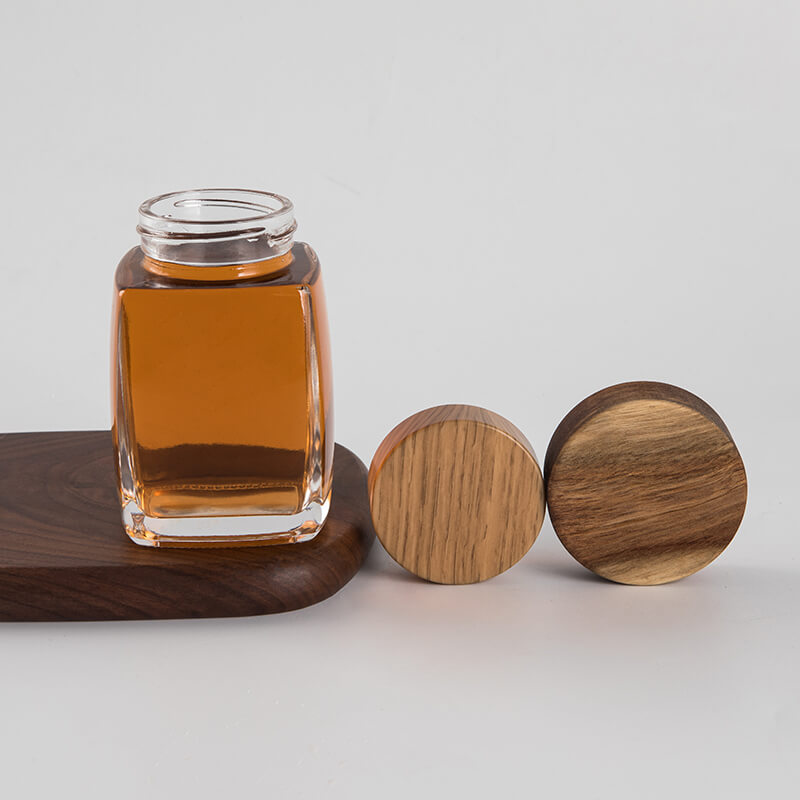Faced with a wide range of food jars on the market, how to make a scientific choice has become a key concern for food processing companies. This article aims to provide a series of practical advice to help readers make informed choices in the complex food jar market.
Table of contents:
Basic guidelines for selecting food jars
Selection of food jar materials
Capacity selection of food jars
Shape selection of food jars
Selection of food jar suppliers
Selection of caps
What food jars does ANT offer?
Common misconceptions about food jar selection
Are glass jars suitable for storing food?
What are the safest glass food jars?
In conclusion
Basic guidelines for selecting food jars
Food jars play an important role in daily life. Whether it is used for storing dry goods and seasonings, or for preserving fresh fruits and vegetables, the right food jars can effectively extend the shelf life of food and keep it fresh and tasty. Choosing the right food jars not only helps in the efficient management of the home kitchen but also ensures food safety and health. There are a few basic guidelines to follow when choosing a food jar:
Safety: Food jars must be made of materials that meet food safety standards. Common materials include glass, ceramic, stainless steel, and plastic. Glass and stainless steel products are widely recommended because of their high stability and the fact that they are less likely to release harmful substances, while plastic products need to be chosen carefully to avoid products that do not meet safety standards.
Sealing: good sealing is the key to keeping food jars fresh. Jars with good sealing can effectively prevent the intrusion of air and microorganisms, avoiding food spoilage and moisture. When choosing, you should pay attention to the sealing structure and material of the jar lid, whether there is a sealing strip, and so on.
Practicality: The size of food canisters should be chosen according to practical needs. Too big will easily waste space, while too small may not meet storage needs. Easy-to-clean cans are also important. There should not be too many ports and bends to facilitate daily cleaning.
Appearance and design: A beautiful and easy-to-use design can enhance the experience. The shape and size of the canister should be considered when choosing whether it is easy to pick up and place.
Selection of food jar materials
When shopping for food jars, the choice of material is crucial. Different materials have their unique advantages and disadvantages and are suitable for different types of food storage.
Glass: glass food jars have good transparency and high-temperature resistance, suitable for storing pickled foods, jams, and drinks. Jars made of high borosilicate glass are even more resistant to cold and heat, making them suitable for storing heated ingredients or putting them into the refrigerator for freezing. However, glass jars are heavy and fragile, so care should be taken when using them.
STAINLESS STEEL: Stainless steel jars are durable, corrosion-resistant, and suitable for long-term use. Its sealing and preservation effect is also better, suitable for storing a variety of dry goods and spices. The disadvantage of stainless steel jars is that they are not transparent and you cannot directly view the inside of the jar.
Plastic: plastic canisters are lightweight and durable, suitable for storing rice, snacks, grains, and cereals for daily needs. Food-grade plastic jars have better permeability, but are not heat-resistant and are not suitable for storing food heated at high temperatures. Care needs to be taken to choose a material that meets food safety standards.
Ceramic: ceramic jars have good heat preservation and aesthetics, suitable for storing tea, coffee, and other foods that require heat preservation. However, ceramic canisters are heavy and fragile, so special care is needed when handling and using them.
Capacity selection of food jars
The choice of capacity should be based on actual needs. Different types of food have different capacity requirements:
● Grains and cereals: due to the variety and quantity of grains and cereals, it is recommended to choose a sealed jar with a capacity of 2L-2.5L.
●Sauces: jam, chili sauce, salad, etc. The capacity is recommended to be between 250ml-500ml.
● Seasonings: Chicken essence, pepper, monosodium glutamate, sugar, salt, and other seasonings are easy to moisture, suitable for the choice of small-capacity sealing jars, with a capacity of between 150ml-300ml.
●Fruits: Cut fruits are suitable to be stored in rectangular-shaped jars with a capacity of 1-2.3L and wide-mouth design for easy access.
Shape selection of food jars
The type of food has a direct impact on the choice of jar shape. Foods with different forms and characteristics require different can shapes to ensure optimal preservation and use.
For liquid foods such as honey, sauces, salads, jams, etc., cylindrical cans are ideal. This shape distributes the internal pressure evenly and reduces the risk of leakage due to pressure variations, thus ensuring food sealing and safety.
Solid foods, especially irregularly shaped foods such as meats and chunky vegetables, are better suited for square containers. The right-angled design of square containers allows food products to be arranged closely together, reducing wasted space and improving packaging efficiency. At the same time, the shape of square containers makes them easy to organize on shelves.
Selection of food jar suppliers
Supplier is an equally important factor to consider when buying food cans. Reliable food jar suppliers often have higher quality assurance and perfect after-sales service, so that customers are more at ease in the process of use.
As a leader in the food jar industry, ANT has won the trust and praise of consumers with its rich product line, excellent quality, and first-class service. ANT has advanced packaging technology, which can ensure the quality and safety of food cans. ANT strictly controls the quality, from raw material purchasing to production and processing, every step of the process is strictly inspected and screened. In addition, ANT also provides excellent customer service, answering consumers' questions at any time to ensure that consumers' rights are protected.
Selection of caps
The sealing performance of canned goods is one of the key factors to ensure food quality and safety. A good sealing lid can effectively isolate the outside air, moisture, and microorganisms, preventing food spoilage and contamination. Good or bad sealing performance directly affects the shelf life and safety of food.
Tinplate cap: Tinplate lids are not only corrosion-resistant and non-toxic, but they also exhibit high strength and good ductility. In the field of food packaging, it has a wide range of applications.
Clamp lid: Plugs made of plastic or ceramic are kept in place by a set of slender metal brackets that can be repeatedly opened or closed.
What food jars does ANT offer?
ANT glass packaging manufacturer offers many types of glass food jars to meet the needs of different consumers. Such as honey glass jars, sauce glass jars, cereal glass jars, jam glass jars, seasoning glass jars, etc. These food jars are made of high-quality materials to ensure the freshness and taste of the food during storage. In addition, we also emphasize on product diversity and continue to introduce innovative products to meet the diversified needs of the market.
Common Misconceptions About Food Jar Selection
Neglecting material safety: Some consumers may choose food jars made of unknown materials or that do not meet food safety standards because they are cheap, which is very dangerous. Always choose glass, stainless steel, or food-grade plastic materials that meet safety standards.
Appearance without quality: Appearance design, while important, should not be the only criterion for choosing a food can. Quality and functionality are more critical, such as sealing and durability.
Inappropriate choice of capacity: Some consumers may purchase food canisters that are too large or too small, which can lead to wasted storage space or failure to meet actual needs. The appropriate capacity should be chosen according to the type and quantity of food to be stored.
Neglecting sealing: sealing is the key to keeping food jars fresh. Some consumers may overlook this and choose jars with poor seals, which can lead to rapid food spoilage.
Are glass jars suitable for storing food?
Glass jars are perfect for storing food due to their healthy and environmentally friendly nature and clear visibility.
What are the safest glass food jars?
Borosilicate glass and tempered glass are considered to be the safest materials for storing food due to their excellent resistance to temperature differences and thermal stability.
In conclusion
The scientific selection and use of food jars not only ensures the freshness and safety of food but also improves the efficiency of storage in daily life. If you are struggling to choose a food jar, I hope this article can help you!
Post time: Oct-25-2024






